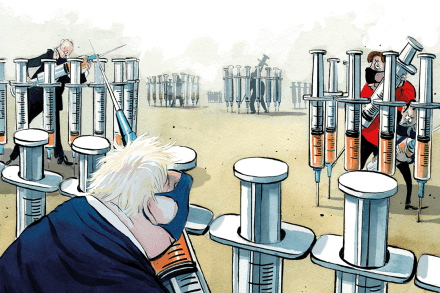Don’t count Bibi out just yet
Elections are supposed to settle things. That’s the idea, at least. Politicians argue, take decisions and pursue the policies they want to, but there comes a day when they have to answer to the public and face their judgment. A day after Israel’s fourth parliamentary election in two years, no verdicts are forthcoming, not even in Prime Minister Benjamin Netanyahu’s corruption trial. The votes are still being counted, but it looks once again to be an awkward draw. Neither Netanyahu nor his rivals are expected to be able to form a governing coalition. Elections in Israel have become like the difficult season of a long-running comedy, when the producers try





















